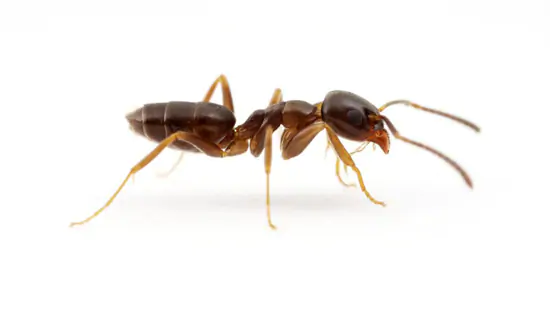ANTS

With their potential to bite, sting and contaminate food, ants are more than just a nuisance. Ants can contaminate and cause food poison. Their bite, though harmless, can be itchy and causes discomfort They can seriously jeopardize your business; compromising the safety and satisfaction of customers and guests, and potentially causing costly damage to your structures and properties.
Ants control program includes:
JV Care’s comprehensive treatments to fit your needs. From inspection to detect where
ants and crawling insects are entering your facility to targeted treatments and a followup outline of corrective measures,
▪ Perimeter inspection to determine ant type and nest locations
▪ Targeted bait applications in high activity areas
▪ Liquid and granular perimeter treatments that provide fast knockdown and create
a long-lasting barrier against ants and other crawling insects
▪ Outline of corrective measures to prevent future infestations
ANT FACTS
The total weight of all the ants in the world is the same as, if not larger than, that of all humans.







Ants Prevention Tips







